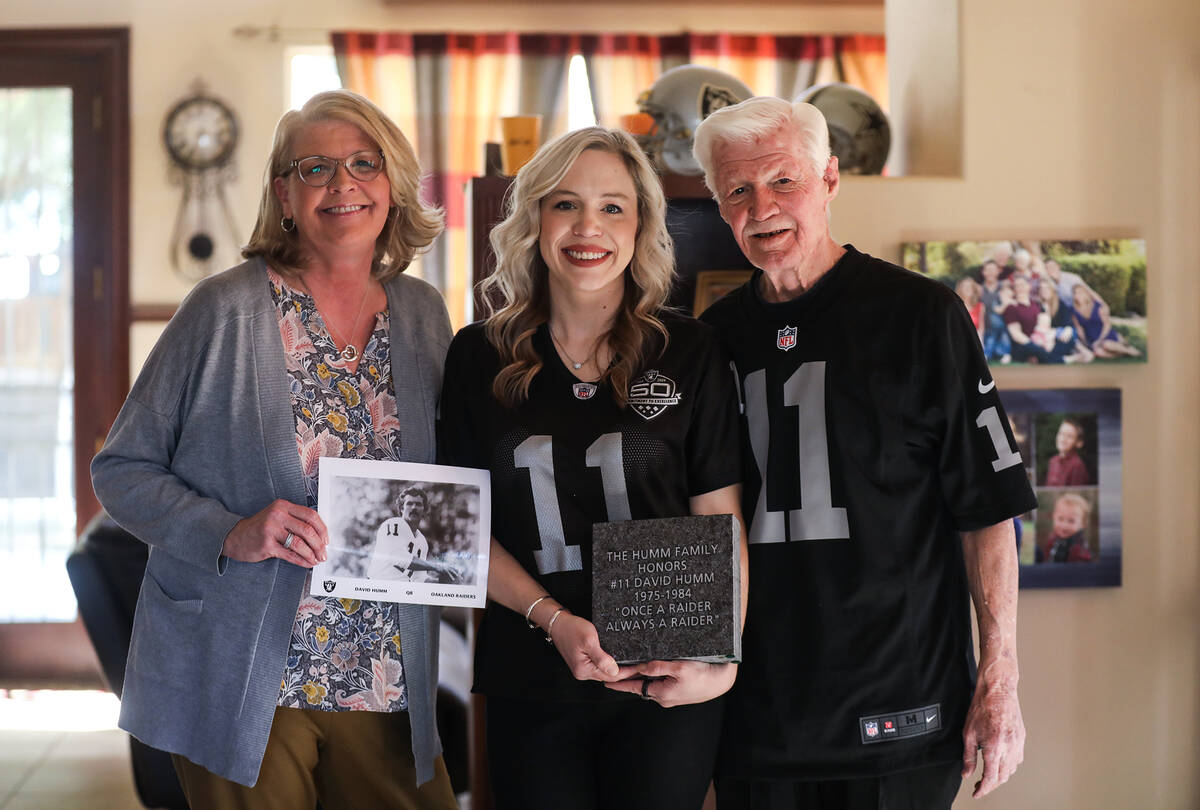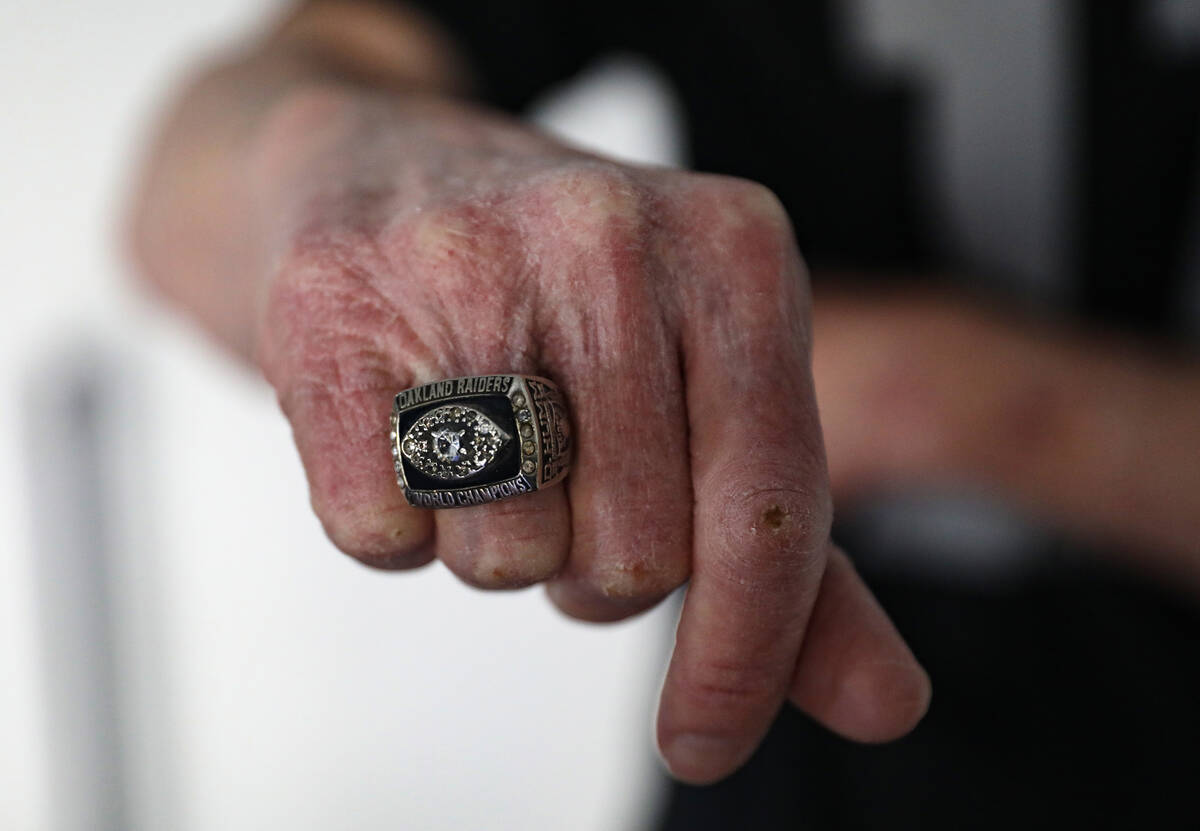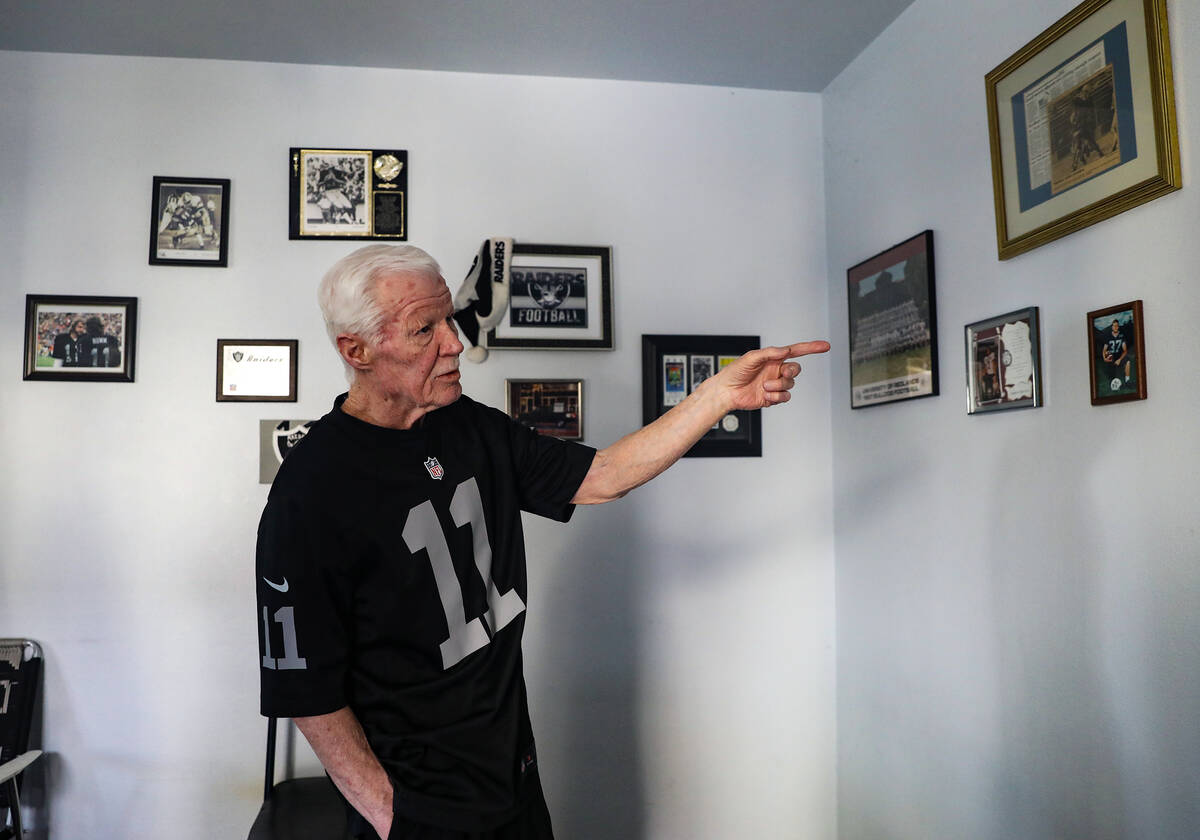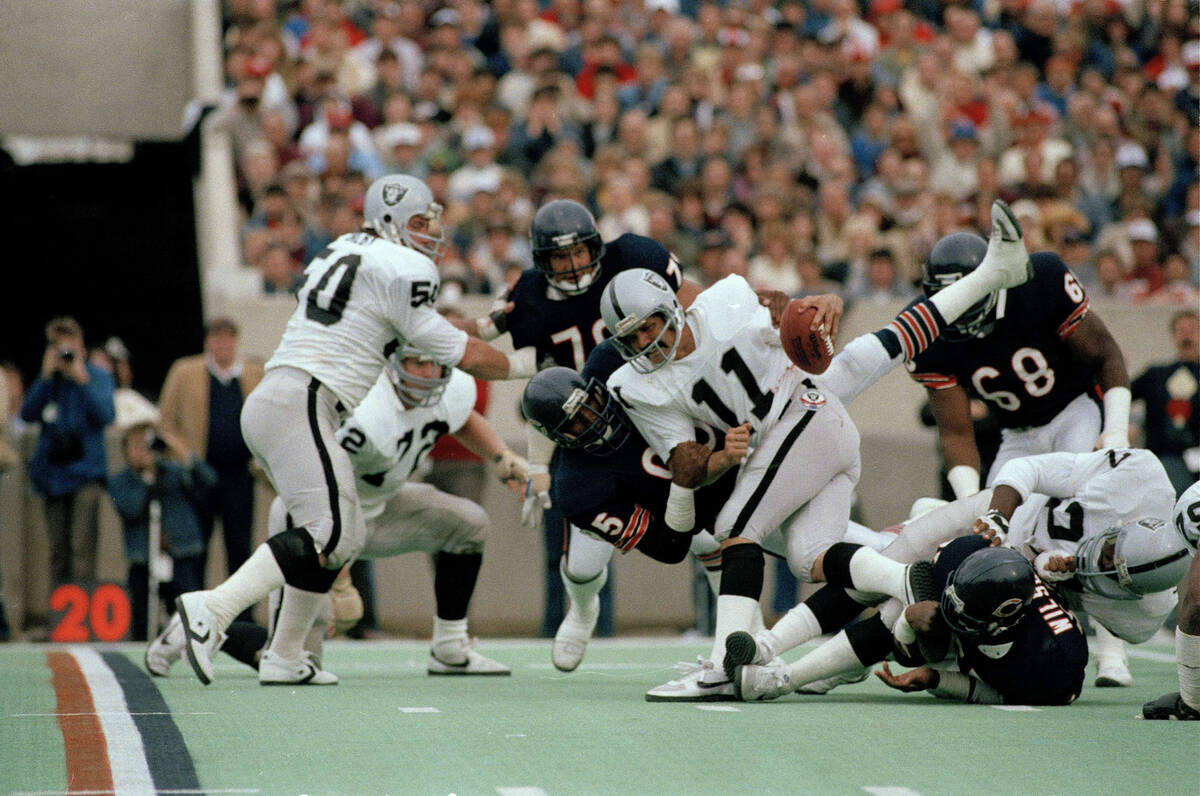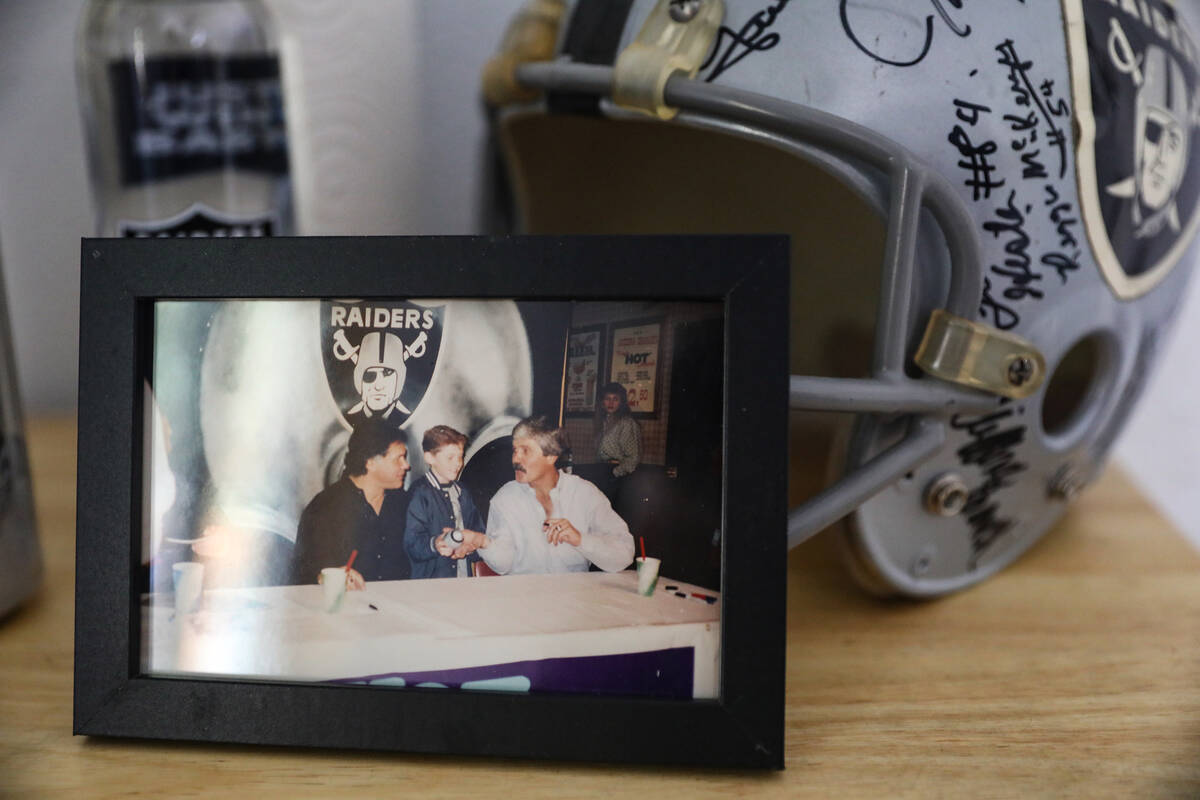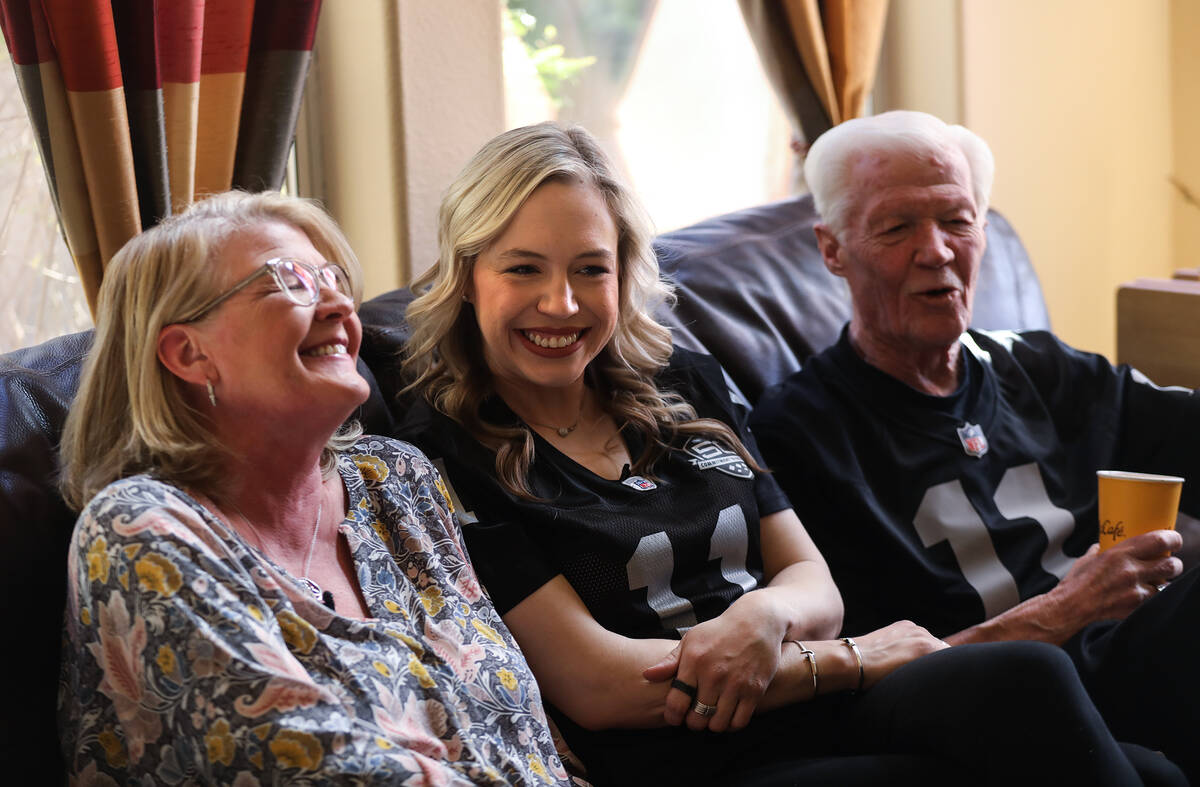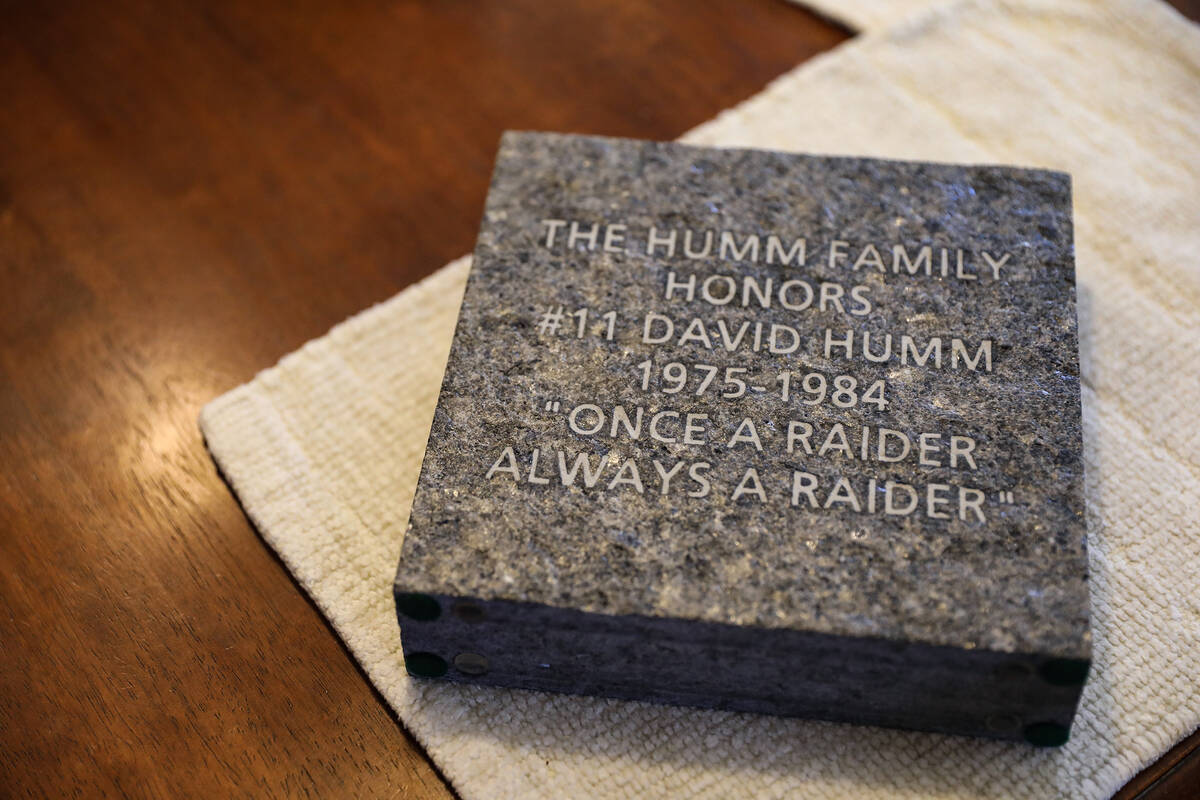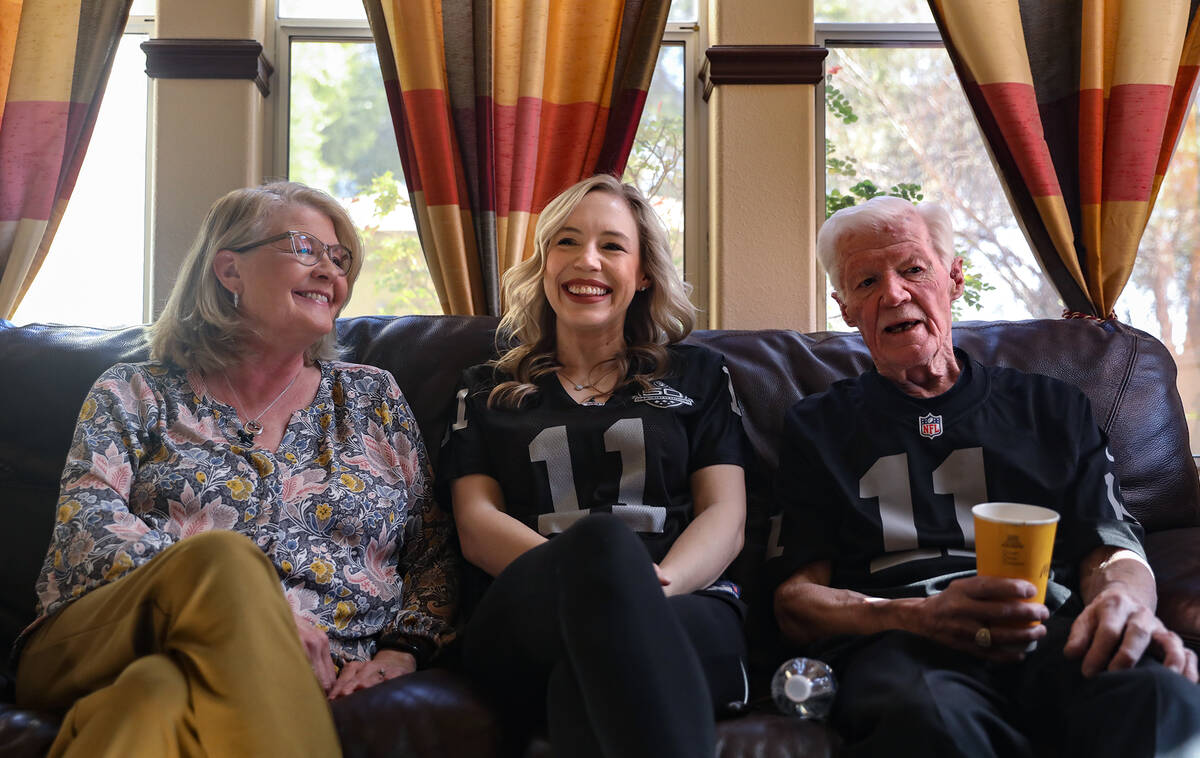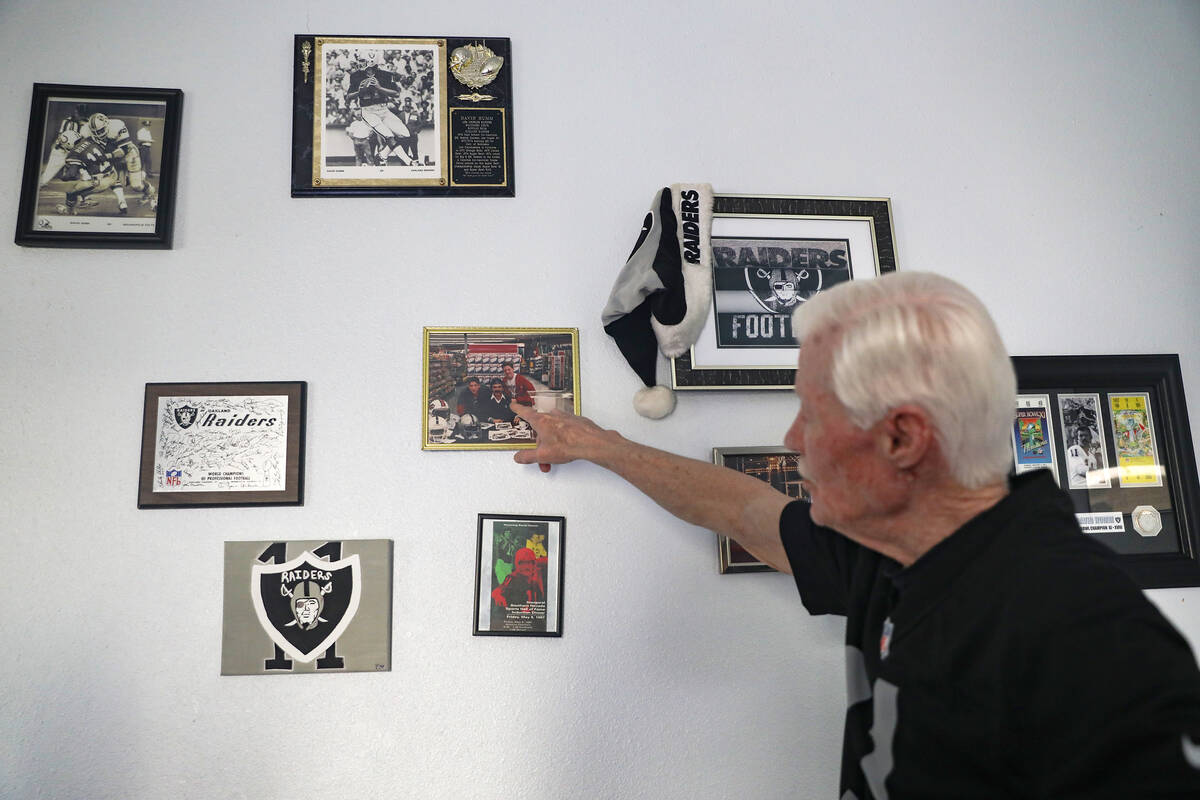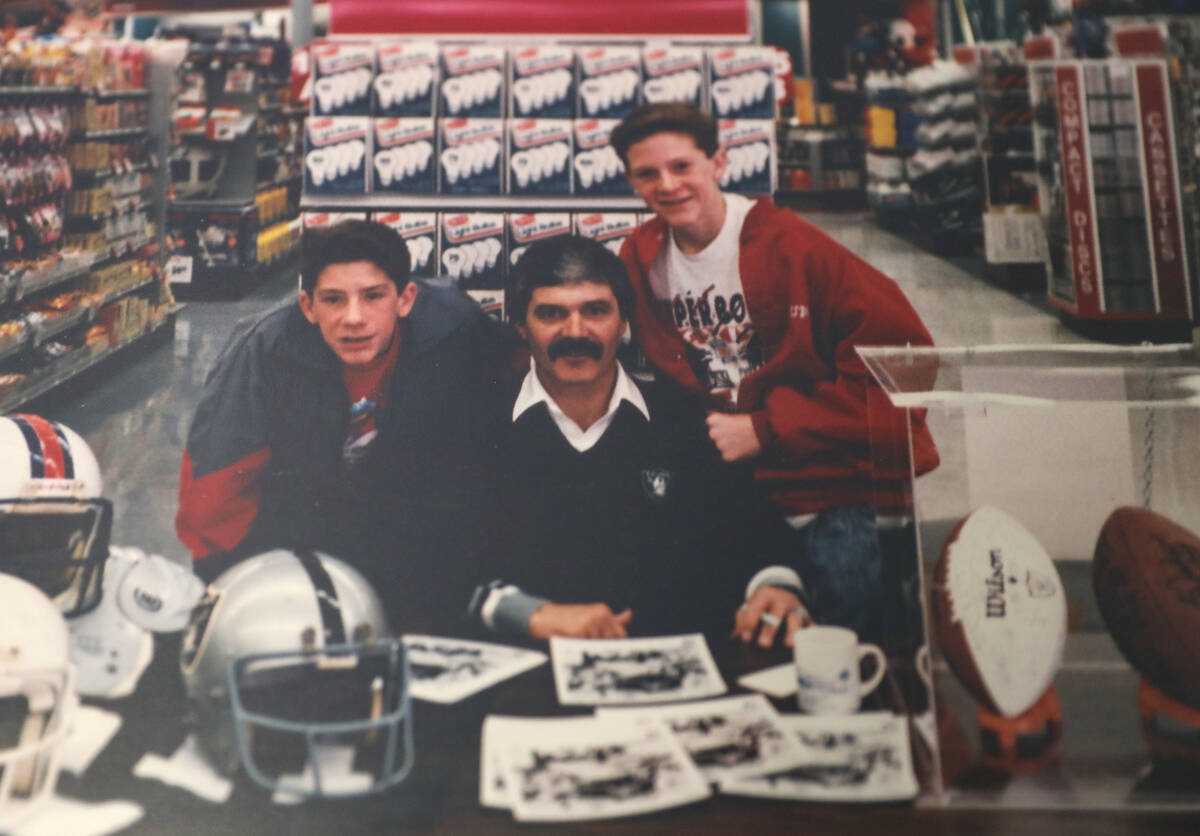Tribute to late Raiders QB Humm to highlight new MS treatments
The late David Humm — Las Vegas native, All-American quarterback and Oakland Raider — was as tough as they come.
Tom Humm, his younger brother by a year — who like his older sibling played football for Bishop Gorman High School and the University of Nebraska — recalled how the prevailing attitude 50 years ago was to play through pain without complaint.
“Understand that back in the ’70s, you were never hurt,” Tom Humm, 69, said from his Queensridge home in the western Las Vegas Valley. “Every time you played football, your coach said that you aren’t hurt. Your dad said you aren’t hurt.”
When David Humm was diagnosed with multiple sclerosis in his mid-30s, shortly after his retirement from the NFL, he thought he was tough enough to beat it and opted not to seek treatment.
“He felt he was bulletproof, and he was strong and he was an athlete, so he could handle it,” their sister Lori Scharar, 61, recalled.
By the time his daughter was 8 years old, her dad was in a wheelchair.
Courtney Humm, who grew up playing multiple sports, said her dad missed only one of her games ever and would watch her shoot baskets for hours.
Now 32, she wonders what might have been if he’d been on medication, especially the newer drugs available today.
“I never got to play sports with my dad,” said Courtney Humm, who from a young age served as a caregiver for her father.
As his disease progressed, David Humm continued to broadcast pre- and post-game analysis for Raiders games from a bedroom in his home, his young daughter happily at his side, wearing her own set of headphones that he gave her.
True to his upbringing, as his health deteriorated and he became homebound, he didn’t complain, his family said.
David Humm, who in 2018 died at age 65 from MS complications, is an honoree at Saturday’s Power of Love Gala at the MGM Grand Garden . The event is a fundraiser for the Keep Memory Alive foundation of the Cleveland Clinic Lou Ruvo Center for Brain Health in downtown Las Vegas.
‘There is significant hope’
Multiple sclerosis is a potentially disabling disease of the brain and spinal cord in which the immune system attacks the protective sheath called myelin that covers nerve fibers. The resulting nerve damage disrupts communication between the brain and body.
In 2005, Scharar was diagnosed with MS after a bout of vertigo while traveling. Witnessing her brother’s decline, she sought immediate treatment.
Since shortly after her diagnosis, she has been treated with the injectable drug Copaxone, which blocks the immune system’s attack on myelin. She experiences fatigue as well as weakness on the left side of her body, but in 18 years the disease hasn’t progressed and her symptoms haven’t worsened.
Since the early 1990s, disease-modifying therapies have been available to reduce the risk of relapses and new MS plaques in the central nervous system.
“If you look at the trajectory from 2010 to now, there has been an explosion of medications: 15 medications in just the past 13 years, compared to only five for the 17 preceding years,” said Dr. Le Hua, director of the Mellen Program for MS at the Ruvo Center and the Eric and Sheila Samson chair for MS research.
Thirty-plus years ago when patients were diagnosed with the disease, they were told there was nothing that could be done, Hua said. “Some were told they shouldn’t work again. Some of them were told not to have families.”
A diagnosis of MS today does not carry the same stigma. “If you are diagnosed with MS now, there is significant hope and potential that we can completely stop the disease in its tracks,” she said.
Early diagnosis is critical. “If we can identify that you have MS early, we can also intervene early and hopefully even stop your disease before it causes anything that’s noticeable.”
After diagnosis, MS specialists can assess what drug is right for the patient, she said. The Ruvo Center conducted clinical trials for five of the latest MS drugs, and is currently part of trials for 20 new therapies.
Participating in the trials gives patients “early access to therapies that we know are going to continue to make that difference and be the next wave of change,” she said.
As part of comprehensive care for patients, the center provides physical therapy and rehabilitation. It offers transportation assistance.
It offers programs such as adaptive yoga and healthy-cooking demonstrations. Money raised through the Power of Love Gala helps to fund such programs, including ones for caregivers.
By honoring David Humm at the gala, his family hopes that light will shine on the new treatments that weren’t available when he was diagnosed.
His daughter also hopes to amplify this message: “Don’t be afraid to ask for help.”
Contact Mary Hynes at mhynes@reviewjournal.com or 702-383-0336. Follow @MaryHynes1 on Twitter.



